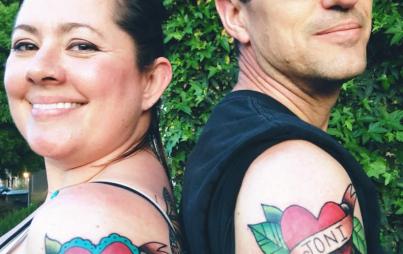
You shouldn’t pursue self-love and better self-esteem because you want to feel worthy of being loved someday — you should pursue self-love because you deserve to love yourself. Image: Drew Coffman/Unsplash.
Positivity is a powerful force for good.
Even as the ways of the world have made cynicism and pessimism more prevalent (and not without reason), building people up will always do more for them than breaking them down.
As social media becomes an increasingly ingrained aspect of everyday life, the importance of conveying positive messages continues to grow. If we’re constantly connected to a world of information, being inundated by a barrage of hate and negativity will affect our worldview in a very real way.
That’s why you never read the comments, folks.
That being said, there is a danger in the rise of affirmations and other empowering online content.
Some types of affirmations aim to inspire a sense of independence, but in reality only invalidate the struggles of the person who reads them.
Today, I’d like to address one of the most heavily circulated.
I’ve seen it shared in countless Tumblr posts, echoed across Facebook statuses, and written in artsy fonts in front of black-and-white photos of landscapes on Instagram.
The idea that “nobody can love you until you love yourself” is bullshit.
Let’s make something very clear: You do not need to reach a certain point in your own personal recovery before you deserve to be cared for.
Claiming that you “have to love yourself before anyone else can love you” is rooted in an important idea — that you should prioritize your own self-care and emotional wellbeing before trying to pursue a romantic relationship.
However, this is not the same as the idea that you need to love yourself before you deserve to be loved.
The most important distinction between the two is that one tries to portray self-esteem as some sort of finish line, while the other addresses the significance of making sure you’re whole.
A romantic relationship shouldn’t be an end goal. You shouldn’t pursue self-love and better self-esteem because you want to feel worthy of being loved someday — you should pursue self-love because you deserve to love yourself. You should prioritize your own mental and emotional health over romantic love because it’s your life, and it deserves to be protected.
You don’t need romantic love in order to want to be better. You don’t need to reach a certain degree of self-esteem in order to qualify to be loved, nor does not having a partner say something about the content of your character.
You aren’t half a person trying to qualify to be worthy of finding your other half. You’re a whole person with your own thoughts, feelings, and experiences that wants to find someone to add to it eventually.
Furthermore, claiming “you have to love yourself before you can be loved by someone else” puts forth the myth that there’s some sort of finish line to self-esteem. It promotes the idea that eventually you’ll reach a point where you can say, “Well, I love myself now,” and everything will be sunshine and lollipops.
Sadly, this isn’t the case.
Life is a lot like trying to walk on a tightrope. It takes care, a lot of small steps, and constant adjustments in order to try to maintain the delicate balance. As more and more continues to happen in your life, you’ll find yourself making little concessions and compromises in order to adjust as best you can — sometimes your self-esteem takes a major hit in order for you to keep surviving.
Your self-esteem may be sky-high one day and hit rock bottom the next. This doesn’t mean that you’re “taking steps backward” because the journey to better self-esteem isn’t a straight line down a road. It’s an uphill climb, and sometimes you lose your footing.
This doesn’t mean you don’t love yourself, and it doesn’t mean you’re undeserving of love. It just means you’re a person.
You can build and maintain a meaningful relationship while in the first stages to better self esteem. While this isn’t always wise (sometimes we use our affections for others to direct our feelings outwards in order to avoid addressing the issue), there are some very real and important benefits that can come from having a romantic relationship during this time.
Having someone to motivate and inspire you to better yourself is a resource that can’t be overlooked. When you’re in the beginning stages of learning to love yourself, you constantly need to reaffirm why you’re doing what you’re doing and why you’re so important. Having someone in your corner, someone who cares for you and wants what’s best for you, can push you to work harder in a very real way.
However, even beyond that, witnessing someone’s love for you can soften the way you look at yourself.
When we’re struggling with our own insecurity, we tend to demonize ourselves. We think of ourselves as fuck-ups or as being unworthy of being cared for.
When that happens, think about the person you love. Think about how you feel about them — the way they make you happy, the beauty you see in them, and their capacity to be even better as they continue to grow and develop.
Now, realize the person you love sees all those things in you, too.
You don’t need romantic love in order to want to be better. You don’t need to reach a certain degree of self-esteem in order to qualify to be loved, nor does not having a partner say something about the content of your character.
You deserve to be cared for. Not because you’ve reached a certain of level of self-esteem, and not because you “finally deserve it" — but because you’re you.
You deserve to be cared for because you have value, because you’re unique, and because you’re so worth loving.
Make progress at your own pace. Move forward as best you can, and understand that fluctuations in self-esteem aren’t necessarily “moving backward.”
Above all else, understand that every version of you has value. Past, present, and future: They aren’t separate people, just different stages of the same life.
They all have their shortcomings and they all have value.
You — every version of you — deserves to be loved.








